As hunger soars in northeastern Nigeria, WFP funds dry up
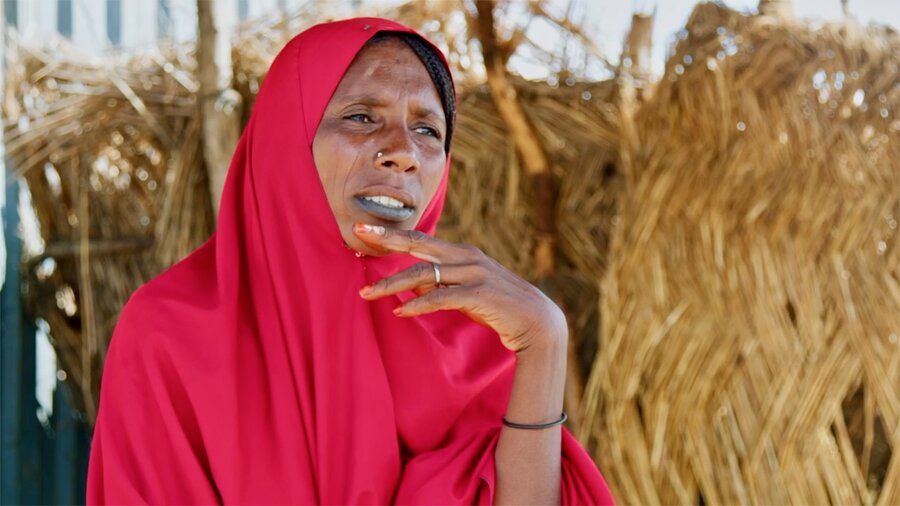
On the good days, Iya and her husband are barely able to feed their large family. On the bad ones, their seven children go to bed hungry in the small mud-brick hut they call home. In northeastern Nigeria’s Mafa displacement camp, where the family lives, August is shaping into a month of many bad days.
“The support we get isn’t enough,” says 45-year-old Iya of the World Food Programme (WFP) food assistance. As a conflict-displaced person, her last name is being withheld for her protection. “As a parent, it’s never enough.”
Soon, Iya’s family risks getting nothing at all. With donations drying up, WFP is beginning to cut food and nutrition assistance to hundreds of thousands of vulnerable people across northeastern Nigeria - even as hunger soars in the region, fuelled by conflict, insecurity and extreme weather. Children are likely to be among those worst affected.
“WFP’s operations in northeast Nigeria will collapse without immediate, sustained funding,” says David Stevenson, WFP Country Director for Nigeria. “This is no longer just a humanitarian crisis, it’s a growing threat to regional stability, as families pushed beyond their limits are left with nowhere to turn.”
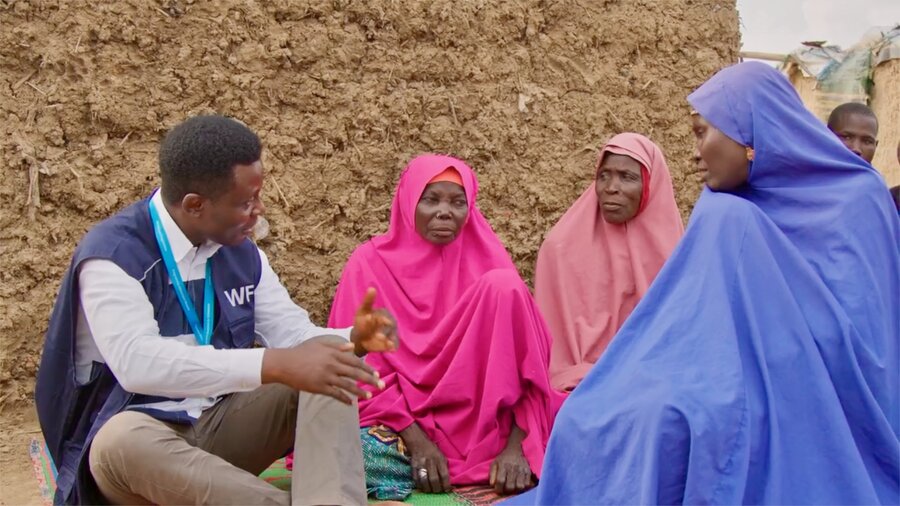
Of the 31 million people across Nigeria facing severe food insecurity, nearly five million live in three northeastern states - where some 2.3 million people are displaced by longstanding conflict. Borno State, where Iya’s family lives, is the epicentre of the hunger and displacement crisis.
Earlier this year, WFP’s food and nutrition support reached 1.3 million people in northern Nigeria. Without an immediate influx in donations, only half that number will be assisted in August. After that, our assistance in the region could be completely suspended.
“Families here will be left with impossible choices,” says WFP Nigeria Nutrition Officer, Dr. John Ifuk-Ibot. “Go hungry or flee again.”
‘Hunger will kill you’
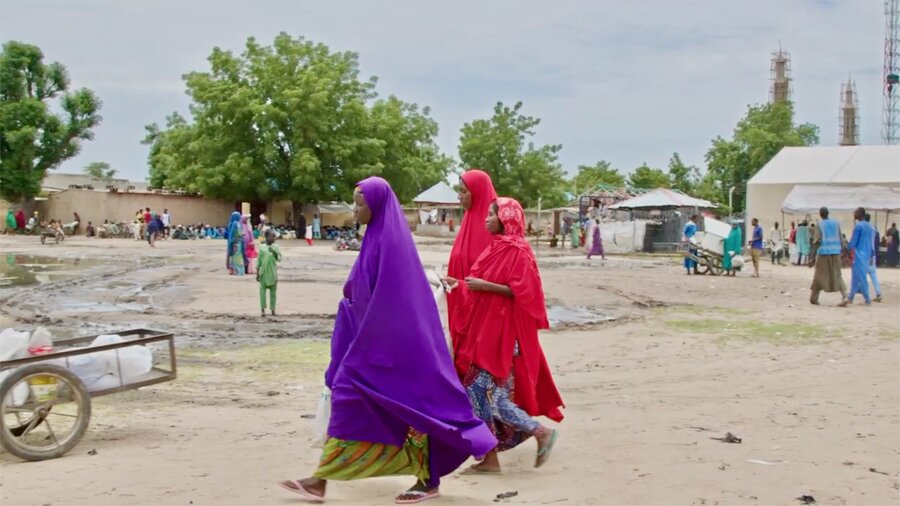
Iya and her family are no strangers to being uprooted. A decade ago, they escaped armed fighters who attacked their village of Dikwa, about 38 kilometres away from Mafa displacement camp. They initially sought refuge in Chad, but a year later they crossed back into Nigeria, settling in Mafa.
“Our village is not safe to return to,” Iya says.
The area around Mafa camp is also dangerous. Roving armed groups prevent farmers from planting, and there are few other employment opportunities. Those who manage to find work say they earn about US$0.30 daily at most - not even enough for a loaf of bread, which costs about US$1.20.
“If you go outside, there’s danger,” Iya says. “But if you stay home, hunger will kill you. All we want is help from someone.”
Sprinkled with mud-and-thatched shelters, the dusty Mafa camp is home to thousands of uprooted people, each with a story of hardship. All depend on WFP’s monthly rations that include cooking oil, sorghum, rice and pinto beans.
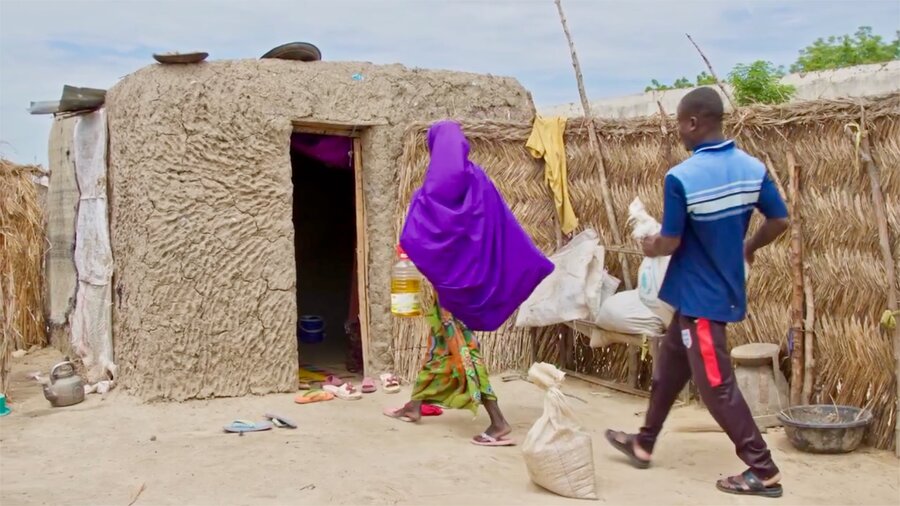
Many residents, like 45-year-old Yaanama and her family, were once farmers who could feed themselves and their communities. For many, that has come to an end. Yaanama's family was evacuated from their Borno State village of Boskoro eight years ago, after it was attacked by an insurgent group.
“We had a decent life in Boskoro, because we were farming and had food to eat,” says the mother of six. Now, her family also depends on WFP food assistance, along with her husband’s earnings from odd jobs and selling firewood.
“I live in a constant state of fear that I may not ever leave this camp and go back home to a normal life,” Yaanama adds. “Some days I wonder if this is how I will die - living in such conditions.”
Malnourished children at risk
Beyond driving up hunger, the funding shortfall could also shutter 150 nutrition centres WFP supports in Nigeria’s northeast, risking to end lifesaving treatment for 300,000 malnourished children.
Among them: two-year-old Ummi, cradled in her mother’s lap one recent day, at a Borno State health clinic. A Muac strip a health worker wraps around her wrist shows the youngster has moderate-acute malnutrition. Later, mother Hafsat Rumanu collects packages of nutrient-packed peanut paste to help fight it.
“When I noticed my baby vomiting, I took her to the health centre,” says 25-year-old Rumanu, who has three other small children. Already, she says, “I am seeing changes. She is getting better.”
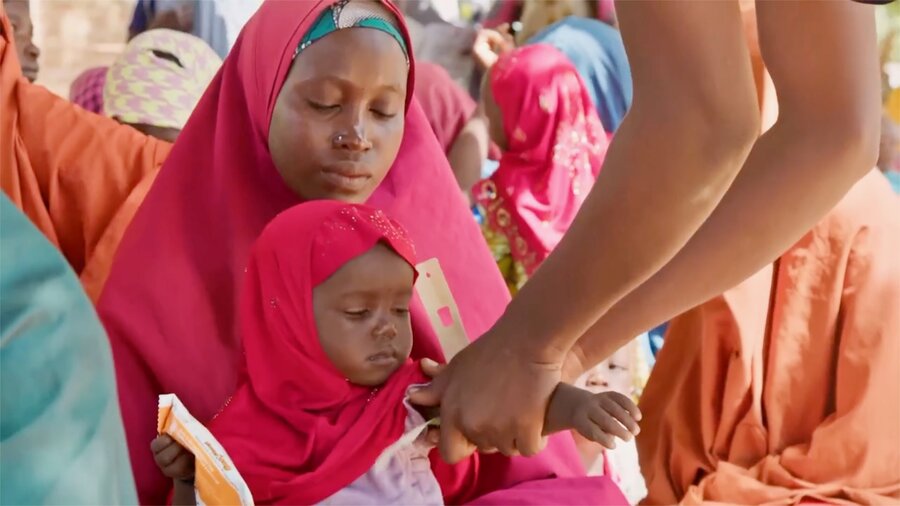
Another mother, Fatima Mustapha Ali, is also seeing two of her children bounce back from malnourishment. At a clinic in the Borno State capital of Maiduguri, the young mother also picks up packages of fortified peanut paste to continue their treatment. Without more funds for our operations, those WFP-supported supplies may be her last.
“If this intervention ends, we will be in trouble,” Ali says. “We shall be thankful if they recover before then.”
WFP's work in northeastern Nigeria is supported by Canada, the European Union, France, Sweden, UN CERF and the United Kingdom.
